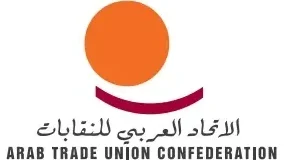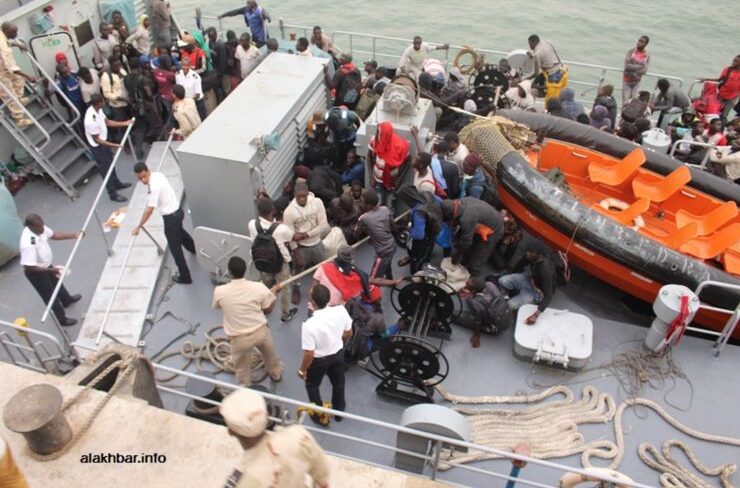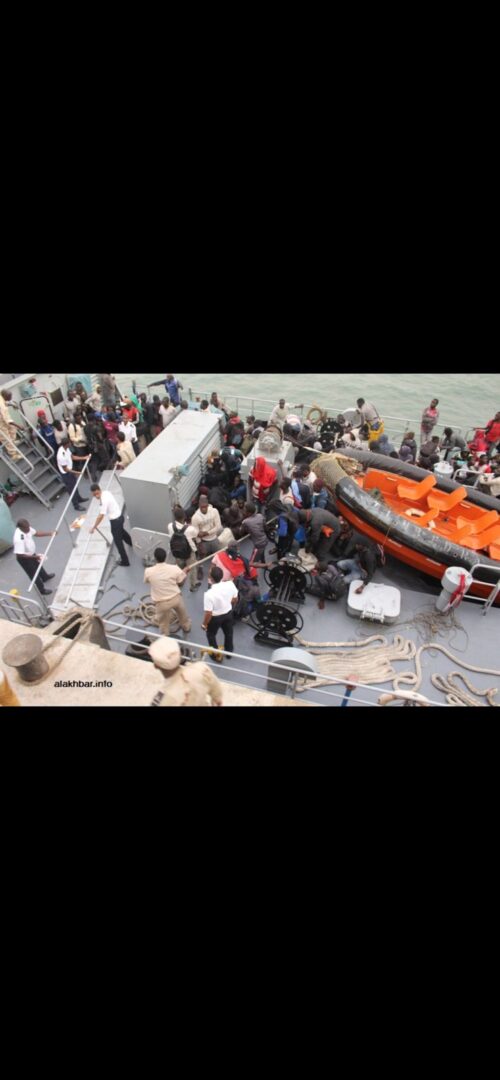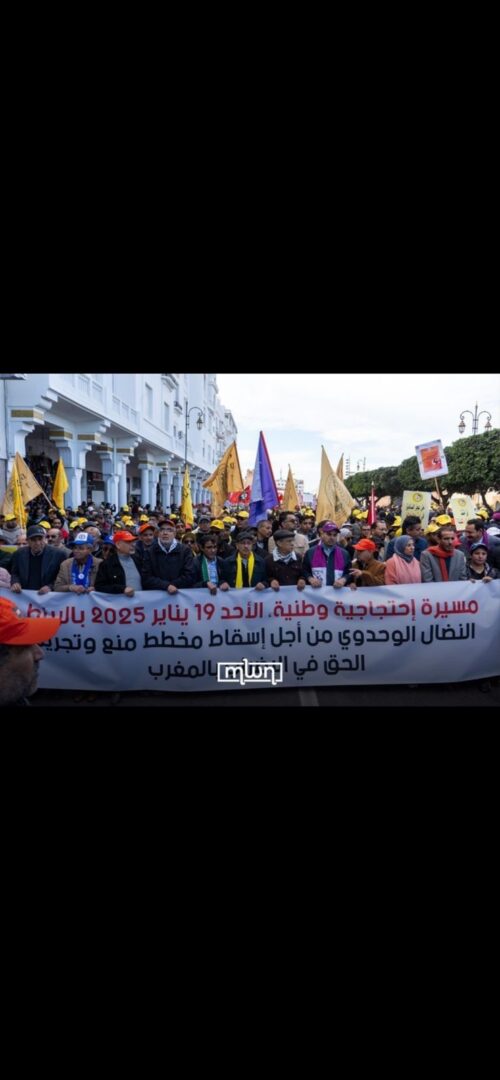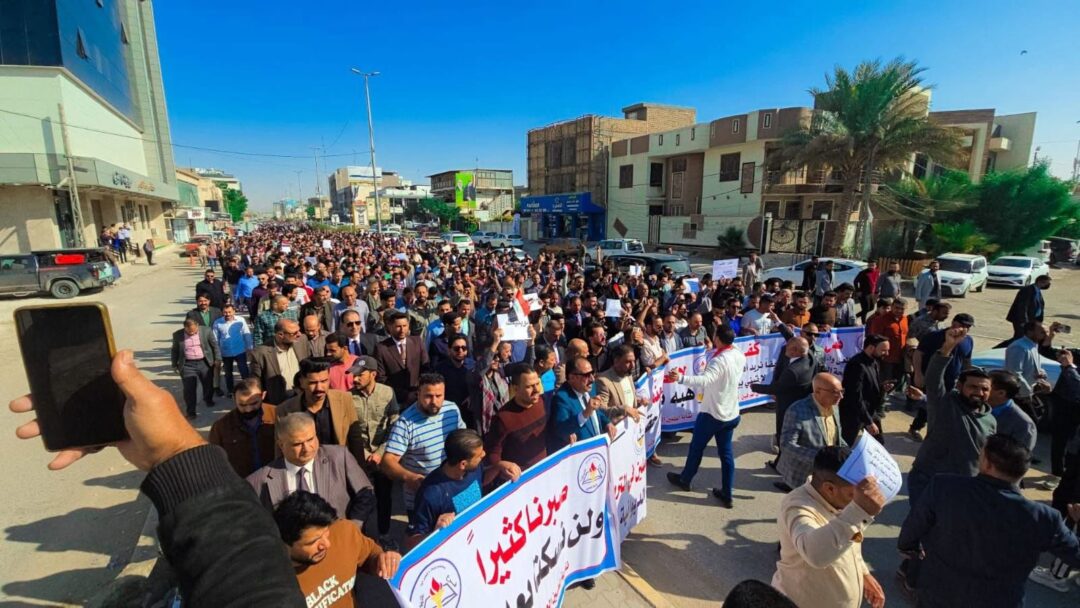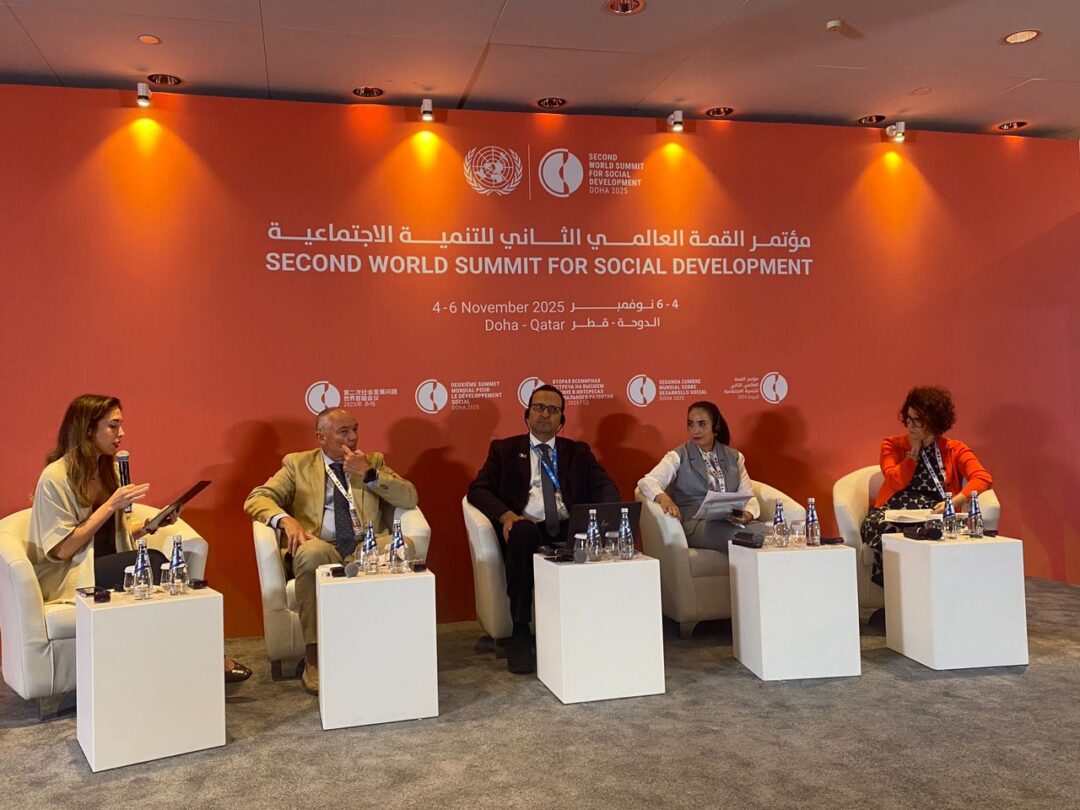Mauritania… When Migrant Workers Become the First Line of Defense: Unions Resist Deportations and Defend Dignity
October 2025
During October and November 2025, Mauritania witnessed an unprecedented wave of forced deportations targeting migrant workers. The scope of these operations expanded sharply, raising widespread concern among human rights and trade union organizations both inside and outside the country. Overnight, thousands of workers—who form a crucial backbone of the construction, fishing, and services sectors—became direct targets of raids and arrests that resulted in mass deportations across the southern border, often under harsh conditions lacking even the minimum legal and humanitarian safeguards.
The events began when authorities intensified large-scale inspection campaigns in urban areas, particularly in Nouakchott and Nouadhibou. Large numbers of workers were detained—some taken from their homes late at night, others from their workplaces or local markets. Numerous testimonies indicated that many arrests were carried out without proper verification of migrants’ legal status, and that detainees were transported in overcrowded trucks to temporary detention centers suffering from poor conditions and limited access to family members or legal assistance.
As days passed, it became evident that the situation extended far beyond routine “administrative control operations.” It evolved into a large-scale deportation campaign affecting thousands of workers, including many who had lived in Mauritania for years and considered it their second home. Estimates indicate that between 18,000 and 20,000 workers were deported within a short period, in one of the largest such operations the country has seen in recent years. This has left profound social and economic impacts on the workers and their families in countries of origin that depend heavily on their remittances.
Despite this harsh reality, Mauritanian trade unions played a remarkable and commendable role. They issued clear statements condemning the arbitrary measures taken against workers and called for respect for their human and economic rights, emphasizing that migration policies must not become tools that fuel discrimination or violate human dignity. Unions also followed numerous cases on the ground, coordinated with local and international human rights organizations to document violations, and advocated for a humane approach that balances law enforcement with the protection of human beings.
This trade union stance is not new; it reflects a long-standing tradition within the Mauritanian labor movement of defending the most vulnerable—whether citizens or migrants—based on a firm belief that workers’ rights are indivisible and that decent work is a universal human right. Their efforts contributed to creating significant public pressure to curb abuses and helped refocus the debate on its essential question: the urgent need for fair migration policies that preserve workers’ dignity and ensure their safety.
These developments also intersect with growing regional and international concerns that countries of the Global South could become enforcement zones for European migration pressures, at the expense of workers’ rights. In recent years, Mauritania has become a key transit point for migrants heading toward the Canary Islands, prompting the European Union to sign agreements with Nouakchott under the banner of “migration management.” However, recent events raise a critical question: How can these agreements align with states’ obligations to protect human and labor rights, and what guarantees exist to prevent them from becoming pretexts for mass deportations?
As the Arab Trade Union Confederation (ATUC) closely follows these developments, it commends the principled and courageous stance of Mauritanian trade unions in confronting violations against migrant workers. ATUC emphasizes the need to halt all forms of arbitrary deportation, ensure fair legal procedures, activate independent monitoring mechanisms with union participation, and strengthen labor and migration policies grounded in dignity and social justice rather than security-driven approaches.
Migrant workers are not mere numbers in administrative files—they are human beings who have contributed to building economies, stabilizing communities, and developing vital sectors. Protecting them is not a choice; it is both a trade union and humanitarian duty.
